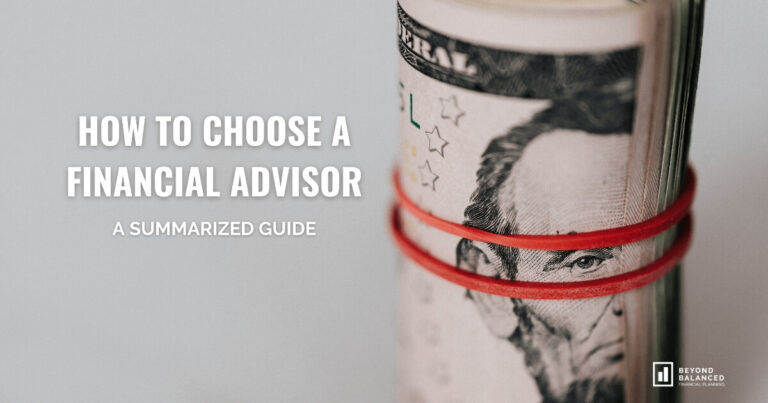You’ve mastered balancing your budget, established a strategy for paying off debts, and you’ve accumulated a sizeable emergency fund – it’s time to think about investing. Investing in the stock market is a great way to grow wealth, but the process can seem overwhelming. That’s exactly why I created this beginner’s guide to investing to help you get started.
Become An Investor
Contributing to a retirement account or opening an investment account has probably been on your to-do list for quite some time. You’ve probably heard the words tax-free, tax-deferred, Roth, and maybe your brain starts to hurt?
Not to worry! The financial world likes to speak in acronyms and weird lingo but that doesn’t mean that learning the ways of Wall Street is impossible. You have the capacity to learn and understand these concepts over time. For example, you’re reading this post now and already on your way to becoming an empowered investor.
The big question you’re probably asking now is “why should I invest?”
Why Invest?
To grow your money, of course!
When you invest, your money experiences compound growth, which is different than if you simply saved your money into a checking or savings account.
If you saved $10,000/year into a savings account, after 30 years and a 1% annual interest rate, you’d have about $375,000.
If you saved $10,000/year into an investment account, after 30 years and an 8% annual rate of return, you’d have a little over $1,300,000.
Do you see the magic of compounding? Simply put, compounding means your money is earning money, which then earns money, which then earns money! When you do decide to retire, you will have Social Security benefits but it’s up to you to cover the difference between what you receive from Social Security and your actual spending needs (and wants).
There are a variety of accounts you can start investing in. The most common retirement accounts are 401(k)s, 403(b)s, Roth IRAs, and Traditional IRAs. It’s important to remember that retirement accounts aren’t accessible without a penalty until age 59.5.
You can invest outside of retirement accounts as well. These types of accounts are called brokerage or taxable accounts.
When to Invest?
Most are already contributing to a retirement account through their employer, if this is you then you’re already an investor! When thinking about when to invest beyond retirement (or increasing your retirement contribution), it’s best to review what your short-term and long-term goals.
If you have short-term goals such as saving for a new car or an upcoming vacation in the next couple of years, you will want to keep these savings in cash such as savings accounts, short-term CDs, or money market funds. Longer term goals (5 years out or so) can be invested in the stock market. And if you have enough surplus savings, you can save for both short-term and long-term goals at the same time.
What About All the Financial Lingo?
Some Quick Definitions
Stocks: A sliver of ownership in a company.
Bonds: A loan made by an investor (you) to a borrower (usually a company or the government).
Interest: Interest is the income earned for lending money. If you’re invested in bonds (or bond mutual funds), you are loaning money to corporations and governments. They pay you back the original loan plus interest (in the same way you pay interest to take out a loan). The interest is counted as income (taxable to you) unless they are non-taxable bonds.
Dividends: As an investor in stocks (or stock mutual funds), you may be eligible to receive dividends. Dividends are a distribution of profit that companies give back to shareholders (investors). The amount of dividend and when they’re distributed (i.e. end of year, quarterly) is specific to the company. You have the option to reinvest the dividends by purchasing more stock with the dividend proceeds, or you can opt to take the dividends as a cash distribution.
Capital Gain: This is the increase in your investment’s value. For example, if you invested $1,000 and it grew to $1,500, you have a capital gain of $500. If you sold your investment, you would have a realized capital gain of $500. If this is in a retirement account, you would not pay taxes on that gain (this is why retirement accounts are called tax-free growth accounts). If that investment was in a non-retirement account, you would pay taxes on this gain.
How to Begin Investing
The first step is to decide which type of account to open. A retirement account or a non-retirement account. A retirement account can be opened up through your employer’s 401(k) plan (a win-win if they offer matching contributions) or can be opened on an investing platform such as Schwab or TD Ameritrade. Non-retirement accounts would also be opened with your preferred investing platform.
Next, you’ll want to establish a way to fund that account. Linking your checking account can help make contributions easy. What’s important is once you transfer cash in, don’t forget to invest it! Having an investment account with no investments is not going to do you any good.
Determining which mutual funds you invest in can be tricky. Many investment platforms will walk you through a risk assessment to help you determine the risk or growth in the portfolio. This will be a ratio of stocks to bonds. The longer you have to invest (10, 20, 30 years), you’ll want to invest in a mostly stock portfolio. Aim to have diverse and low cost stock funds.
Create a Plan
Once you’ve opened your investment account(s), it’s time to create a plan. Is this a retirement account? Are you able to put the recommended 15% of your income into this account? Maybe you aren’t there yet, but the next time you get a raise you can commit to increasing your savings percentage.
Perhaps you’re already maxing out your retirement account and you need a place to save surplus funds. We recommend auto-saving into a brokerage investment account! Set up annual savings goals and check in quarterly to see how you’re doing.
Whatever you decide, create a system for investing and, if possible, set up auto-contributions.
Outsourcing Your Investing
There comes a time when it makes sense to let a professional help guide you. Whether you don’t enjoy the process or pressure, or your account balance is large enough that one mistake could be dire – any of these steps along the way are a great opportunity to set up a consultation with us. We help align your values with your money to create peace of mind, so reach out today.


